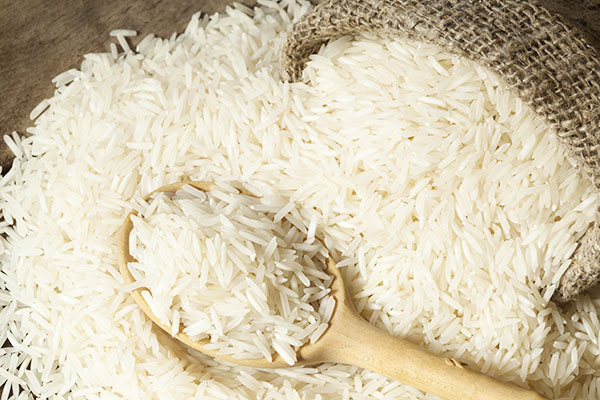Introduction to Basmati Rice
When it comes to rice, basmati stands out as a true gem in the culinary world. Known for its long grains and fragrant aroma, this rice variety is more than just a delicious addition to your plate. It boasts an array of health benefits that can elevate your meals while nourishing your body. Whether you’re whipping up a traditional biryani or enjoying a simple bowl with veggies, the magic of basmati lies not only in its taste but also in its nutritional prowess. Let’s dive into what makes basmati rice so special and explore how incorporating it into your diet can be beneficial for you!
Nutritional Value and Health Benefits of Basmati Rice
Basmati rice is more than just a fragrant grain. Its nutritional profile sets it apart from many other varieties of rice.
Rich in carbohydrates, it’s an excellent energy source. A typical serving provides essential fuel for your daily activities. With a low glycemic index, basmati can help maintain stable blood sugar levels, making it suitable for those managing diabetes.
Beyond carbs, this aromatic rice contains vital vitamins and minerals. It’s a good source of folate and thiamine, contributing to overall health and metabolic function. The presence of antioxidants also aids in combating oxidative stress in the body.
Moreover, basmati rice is gluten-free. This makes it an ideal choice for individuals with gluten intolerance or celiac disease. Adding it to your meals may enhance both flavor and nutritional value without any adverse effects on digestion.
Comparison with Other Types of Rice
Basmati rice stands out among various types of rice for its unique aroma and long grains. Unlike white rice, which can have a higher glycemic index, basmati often has a lower GI. This makes it a better choice for those monitoring their blood sugar levels.
In contrast to jasmine rice, basmati offers a nuttier flavor and firmer texture when cooked. Its aromatic qualities are particularly appealing in Indian and Middle Eastern dishes, giving meals an exotic touch.
Brown rice is another contender; however, it comes with more fiber but lacks the delicate taste that basmati provides. The nutritional profile varies too—while brown rice may be richer in certain nutrients, basmati still holds its ground as a popular option due to its lightness.
Each type of rice has its merits. Choosing the right one ultimately depends on personal preference and dietary needs.
Cooking Tips for Basmati Rice
Cooking basmati rice perfectly can elevate your dishes. Start by rinsing the rice under cold water until it runs clear. This helps remove excess starch and prevents stickiness.
Soak the rinsed rice for at least 30 minutes. This not only enhances texture but also reduces cooking time.
When it’s time to cook, use a pot with a tight-fitting lid. Combine one cup of soaked basmati rice with one and a half cups of water or broth for added flavor.
Bring the mixture to a boil over medium heat, then reduce to low and cover it tightly. Let it simmer gently without lifting the lid for about 15-20 minutes.
Once cooked, let it rest off the heat for another five minutes before fluffing with a fork. This allows steam to redistribute evenly, resulting in light and fluffy grains ready to complement any meal!
Incorporating Basmati Rice into Your Diet
Incorporating basmati rice into your diet can be both delicious and nutritious. Its unique aroma and fluffy texture make it a fantastic base for various meals.
Start with simple stir-fries or curries, where the rice absorbs all those wonderful flavors. You can pair it with vegetables, lean proteins, or legumes to create balanced dishes.
For a lighter option, consider using basmati in salads. Toss cooked rice with fresh veggies and an zesty dressing for a refreshing meal.
Experimenting with different spices while cooking basmati can elevate its taste profile significantly. Try adding turmeric or saffron to infuse color and richness into your dish.
Additionally, enjoy it as part of breakfast by mixing it into oatmeal or frittatas. The versatility of this grain means there are endless possibilities to explore in your culinary adventures!
Potential Risks and Precautions
While basmati rice offers numerous health benefits, it’s important to be aware of potential risks. One concern is the presence of arsenic in rice. Studies show that some varieties, including basmati, may contain higher levels due to soil and water conditions.
Moderation is key when consuming any type of rice. Too much can lead to an imbalance in your diet, especially if you rely heavily on it for carbohydrates without incorporating other nutrient-dense foods.
Additionally, individuals with certain dietary restrictions or conditions like diabetes should monitor their portion sizes. Although basmati has a lower glycemic index compared to other rices, excessive consumption can still cause spikes in blood sugar levels.
Always rinse your basmati rice thoroughly before cooking. This practice can help remove excess starch and reduce any residual contaminants from processing. Taking these precautions ensures you enjoy the full spectrum of health benefits while minimizing risks associated with this delicious grain.
Conclusion
Basmati rice stands out not just for its distinct aroma and flavor, but also for its impressive health benefits. Packed with essential nutrients, it supports digestive health, aids in weight management, and contributes to heart wellness. Its lower glycemic index makes it a favorable choice for those looking to regulate blood sugar levels.
When compared to other types of rice, basmati offers unique advantages that can enhance your overall diet. With careful preparation techniques, you can maximize its nutritional value while enjoying delicious meals.
Incorporating basmati rice into your daily meals is simple and versatile—whether you’re making savory dishes or light salads. Just be mindful of portion sizes and any potential risks associated with excessive consumption.
Embracing basmati rice means embracing a healthier lifestyle filled with rich flavors and nutritious choices. So why not add this delightful grain to your plate?


